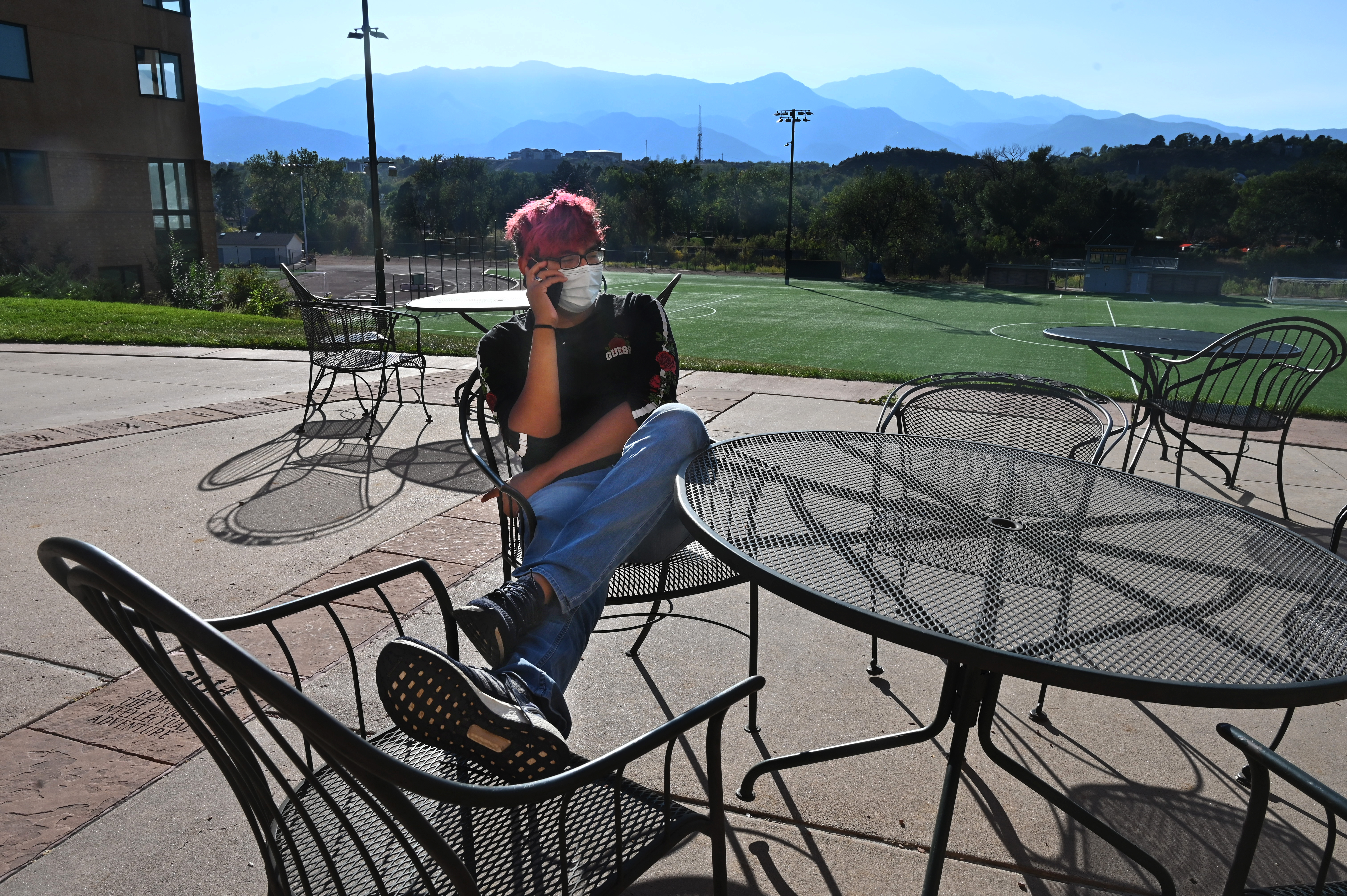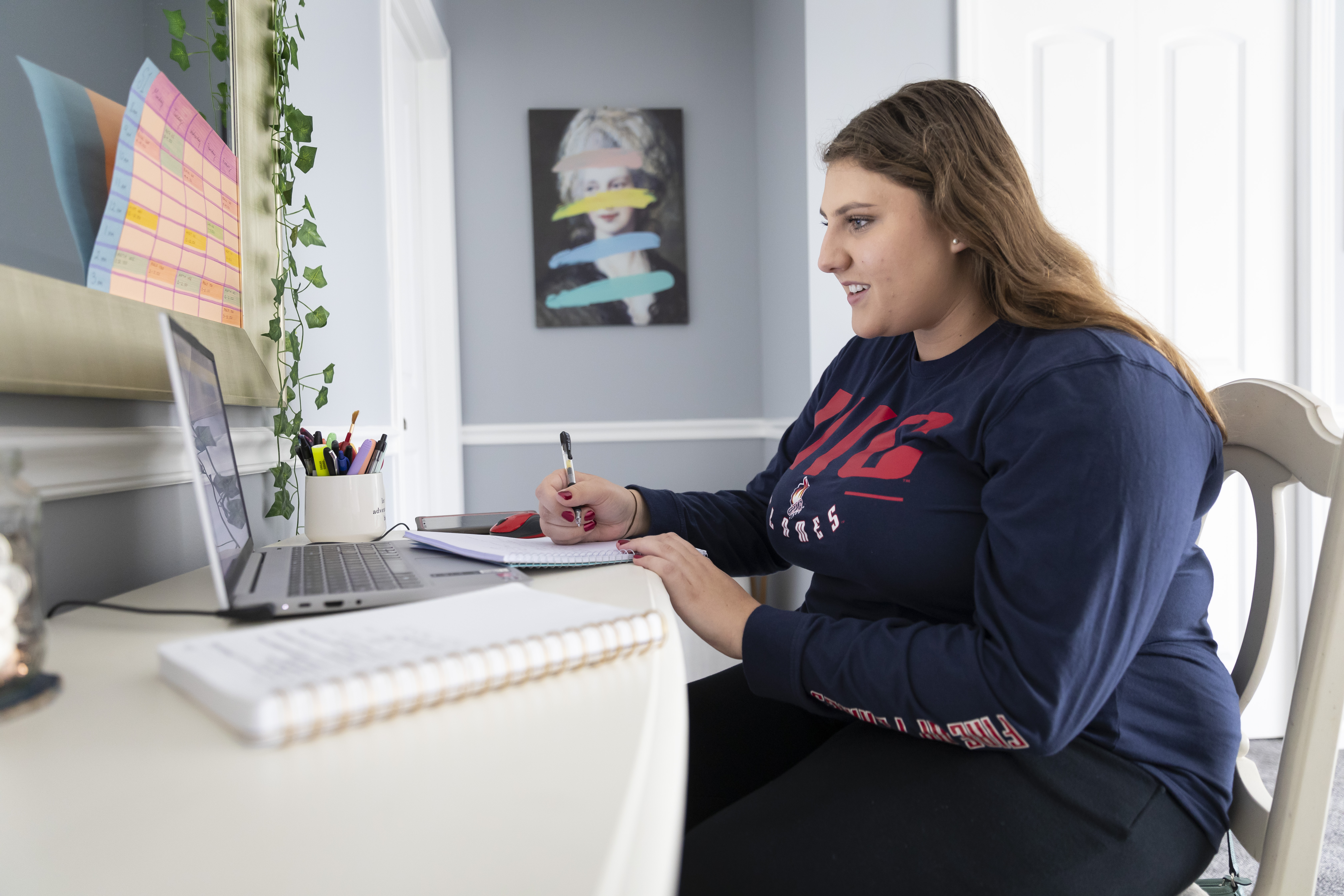This fall, Curious City has been hearing from Chicago area parents, guardians, students and teachers about the challenges and some of the rewards that have come with remote learning during the pandemic.
In last week’s episode, reporter Sarah Karp shared the story of a Mexican American family living in Chicago’s Little Village neighborhood. Serai Camarillo, who has two young sons — Isaac and Noah — has been struggling to make ends meet and keep her kids in front of the computer screen all day for remote learning. And reporter Adriana Cardona-Maguigad introduced us to Jessica Vega, an eighth grade special education teacher at Brian Piccolo Elementary, a Chicago Public School on the city’s Northwest Side. She’s been struggling with burnout while teaching from her basement.
But this school year has presented all kinds of challenges for older students as well — everything from college entrance exams to figuring out how to stay safe while living on campus. So in this week’s episode, Curious City is checking in on those students.
Education reporter Susie An has been following two 16-year-old high school students as they navigate their junior year — a year that’s got a lot at stake when it comes to getting into college.
Lessly Gomez attends Zion-Benton Township High School in Chicago’s northern suburbs. Before the pandemic, 57% of the student population at Zion-Benton was low income. Jordan King attends Naperville North High School, in the western suburbs, where schools are well resourced. Both teens have had to find ways to cope with the difficulties of remote learning and home life during the pandemic.
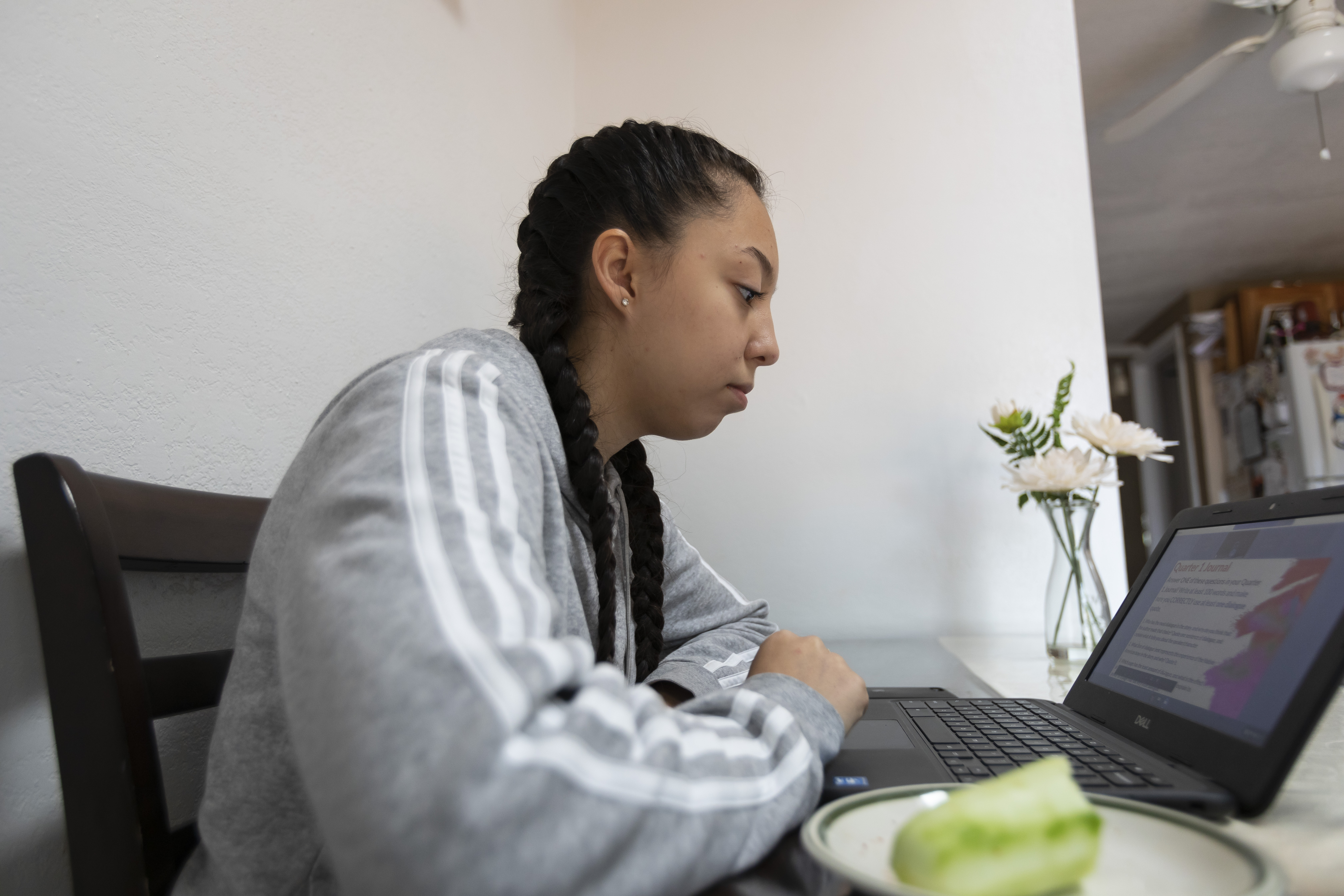
After both of Gomez’s parents became sick with COVID-19, her family became extra careful about spending time out of the house. With more time indoors, Gomez says she’s been looking for ways to stay occupied with her three siblings.
“We kind of watch TV. We tried to play board games, but then after a while it kind of got boring,” she said. “So all I really do is watch TV.”
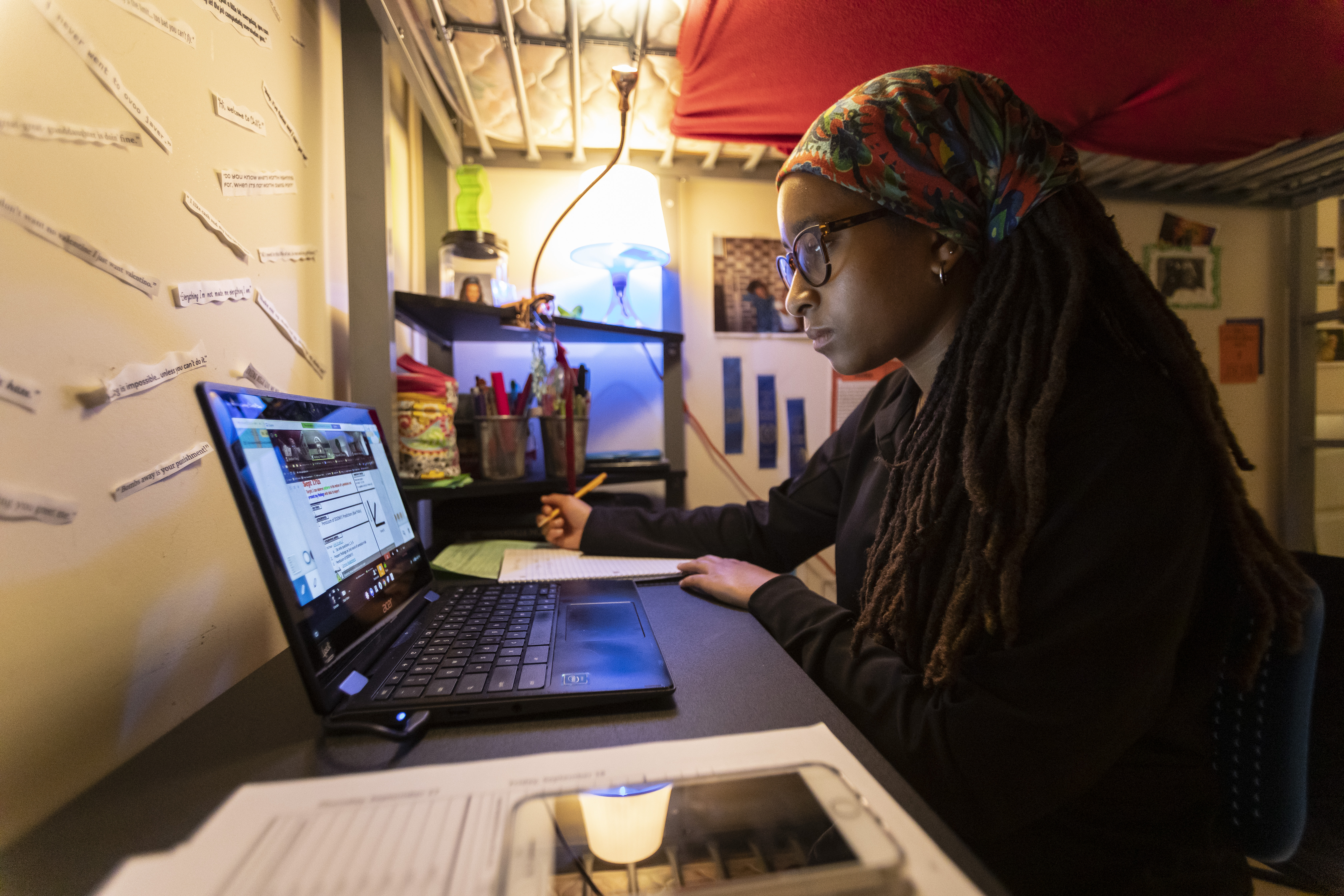
Meanwhile, Jordan King, the student at Naperville North, has adapted to online learning and her school’s new asynchronous block schedule, which allows students to work on assignments on their own time. King says she’s getting through the stress of junior year by keeping organized.
“During school, I get really anxious about everything. So staying on top of my work definitely makes me feel better,” she says.
High schoolers aren’t the only students trying to get through an unusual school year. Reporter Kate McGee has been talking to some students who graduated high school during the pandemic, and now they’re college freshmen.
Some are staying at home and taking classes online. Others packed up and headed to campus this fall.
Kate’s been keeping up with several of these freshmen: Ismael Beltran, who’s on campus at Colorado College; Elizabeth LeBeau, who’s on campus at the University of Illinois at Urbana-Champaign; and Julia Korzeniowski, who’s attending classes at the University of Illinois at Chicago remotely. Their different experiences offer a snapshot of what college in America looks like right now.
One of the students, Elizabeth LeBeau, sums up her freshman year during the pandemic as a continuation of her generation’s nontraditional life experiences in a post-9/11 world.
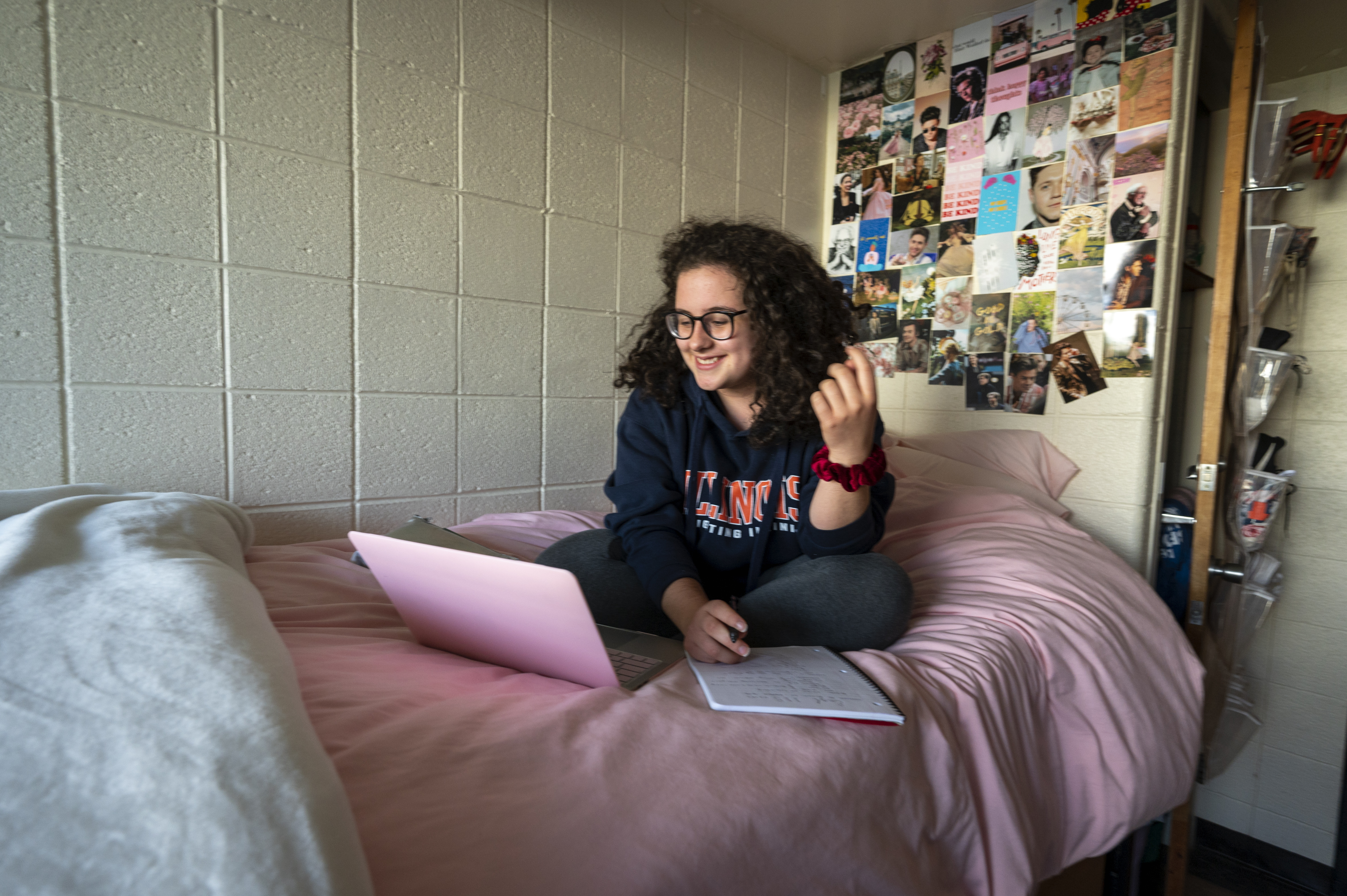
“We’ve always been told, oh, before 9/11, everything was so nice,” she said. “Saying, like oh, we didn’t have all this security, we didn’t have all these bills, the Patriot Act, whatever.”
Prior generations may have been able to rely on big life moments – like high school graduation and freshman year of college – to unfold as expected, LeBau said. But for kids in her generation, LeBeau says it’s easier to accept that these milestones aren’t a sure thing.
“So I feel like I’ve kind of been used to it because it’s been happening my entire life. So what’s freshman year of college or senior year of highschool, you know?”
Listen to the full episode for more, and read the rest of the education team’s reporting on this school year here.

